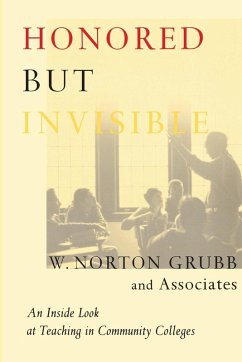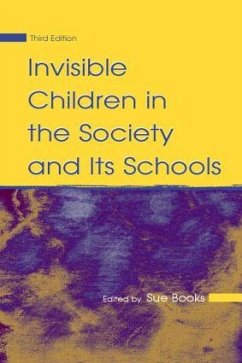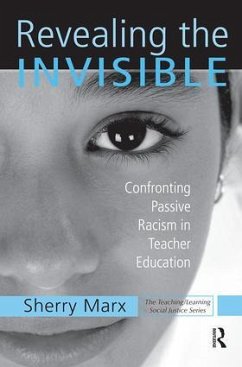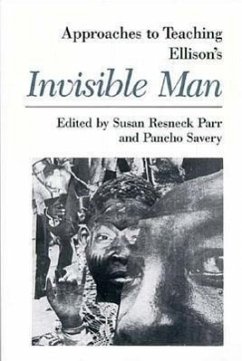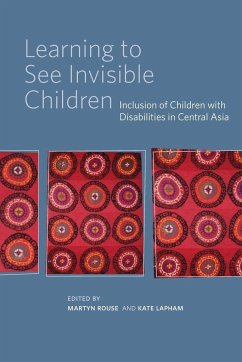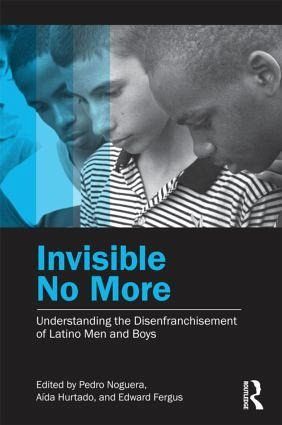
Invisible No More
Understanding the Disenfranchisement of Latino Men and Boys
Herausgeber: Noguera, Pedro; Fergus, Edward; Hurtado, Aída

PAYBACK Punkte
37 °P sammeln!
Latino men and boys in the United States are confronted with a wide variety of hardships that are not easily explained or understood. They are populating prisons, dropping out of high school, and are becoming overrepresented in the service industry at alarming degrees. Young Latino men, especially, have among the lowest wages earned in the country, a rapidly growing rate of HIV/AIDS, and one of the highest mortality rates due to homicide. Although there has been growing interest in the status of men in American society, there is a glaring lack of research and scholarly work available on Latino...
Latino men and boys in the United States are confronted with a wide variety of hardships that are not easily explained or understood. They are populating prisons, dropping out of high school, and are becoming overrepresented in the service industry at alarming degrees. Young Latino men, especially, have among the lowest wages earned in the country, a rapidly growing rate of HIV/AIDS, and one of the highest mortality rates due to homicide. Although there has been growing interest in the status of men in American society, there is a glaring lack of research and scholarly work available on Latino men and boys. This groundbreaking interdisciplinary volume, edited by renowned scholars Pedro Noguera, Aída Hurtado and Edward Fergus addresses the dearth of scholarship and information about Latino men and boys to further our understanding of the unique challenges and obstacles that they confront during this historical moment. The contributors represent a cross section of disciplines from health, criminal justice, education, literature, psychology, economics, labor, sociology and more. By drawing attention to the sweeping issues facing this segment of the population, this volume offers research and policy a set of principles and overarching guidelines for decreasing the invisibility and thus the disenfranchisement of Latino men and boys.





